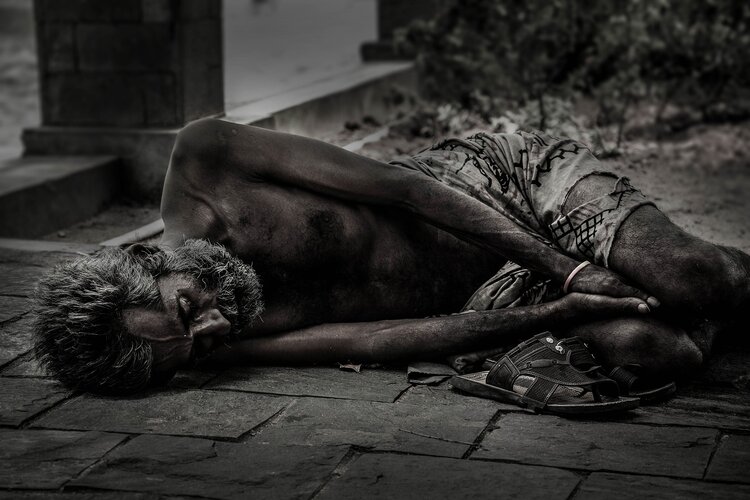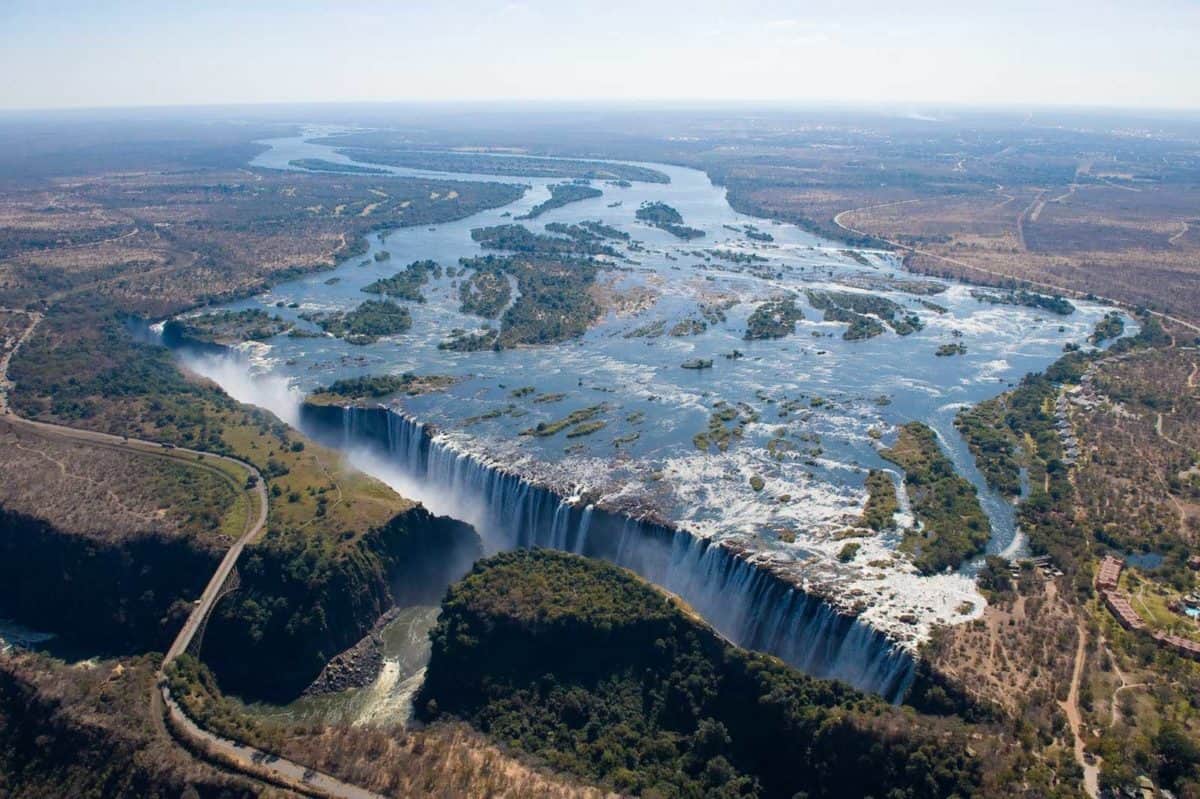I think any legitimate talk about thriving is a dangerous one.
Not only because of the nuance involved in the discussion, which is substantial, but because to do so is a move in the opposite direction of much of the western cultural story.
In the west, we are sold an illegitimate child born from capitalism and a materialistic world view as a replacement for true thriving.
It is my hope to present a framework for what true human thriving looks like, which I hope adds to the discussion in helpful ways. At this stage, where we find ourselves in the 21st century, is in pioneering what is in many ways an innate capacity.
The capacity to flourish.
One thing I love about animals and trees in the wild is that they will allow themselves to do as good as they possibly can based off what they have access to. If the resources are present the tree will bloom fully, without holding back.

The situation is not the same for us, as modern humans, and this is where the situation starts to get tricky.
Really, thriving occurs when all the needs of the organism are met and the majority of our blockages present are removed, allowing us to engage our true potential, across the spectrum that runs from our vegetative demands (food, water, oxygen), to serving a community, to a deep connection to whatever we personally experience as “divine”.
It is by its very nature something that must happen in relationship to the outside world. Which means, that we have to be lucky enough to be in geopolitical circumstances that can even begin to facilitate the state.
The issue with thriving in this regard is that it is not something you can do on your own, in a vacuum of your own psyche. The environment must cooperate with you. Which means, that thriving is a privilege. Not only is it a privilege, but it also requires a lot of hard internal and external work to bring it to fruition.
Unlike what could be considered more nebulous “consciousness-based goals”, which a person could argue are not as dependent on the environment, human thriving is.
The Challenges
So, there are places on this earth, where people simply cannot do this work. There are races, genders, and social identities who will have a harder time making this happen.
This is the privilege part.
Then we have to realize that most of us have ideas, attitudes, mental maps, emotional wounding, traumas, health challenges, financial situations, habits, genetic influences, spiritual influences, and racial, gender-based, and political “blockages” to this innate thriving capacity.
This is the hard internal and external work part.
Yet, these states are so pervasive that we consider them “normal”. The society at large, and those closest to us will try to convince us that it is simply the way things are and the way they will be.
This is the “sold a false bill of goods” part.

To thrive we must overcome all of that, and then somehow, get out of our own way and allow the innate nature of this capacity to erupt forth.
Innate.
The “capacity’ to thrive is innate, and the conditions for thriving have been set by our hunter-gather ancestors. They were more often than not, healthy, vital, highly intelligent people who lived in communities characterized by a sense of meaning, clearly defined expectations, and spiritual values.
They provided for their tribe, danced, fucked, prayed, played, told stories, lived in the raw reality of nature and knew that they belonged.
This is what we must recreate in the context of the modern world.
No easy task.
Because not only is the cultural story heading in the opposite direction, but the conditions must look different for us. We come from these people, but our challenge and rewards live and breathe in our times.
So let’s not try and “reenact” their lifestyles…. let’s forge our own path.
There are many veins feeding into this all-important work, and we must consider it along a “spectrum”, that moves along a set of lines that has been simply elucidated by a movement culture legend named Scott Sonnon. Originally this was laid out in the context of physical culture in a program he created called “Primal Stress”, but it works well as a general map.
And to be clear, of course, these lines may blur for different people. Some may have these veins flowing freely or blocked in any combination. That is why I consider it a spectrum for each of the veins (which I will get after this next bit).
Revive – Survive – Thrive
1. Revive: This is for those of us who feel like the demands of the world are characterized by pain and incapacity. Barely holding our breath above water. Possibly deeply traumatized, “broken”, sick, wounded, disenfranchised people. People who could not adapt to craziness of this world.

Here we need to revive, so that we can effectively survive, and how to do this (when possible) is beyond the scope of this article.
2. Survive: This is where we feel capable of taking on the demands of the world. Things are tough but manageable. Not necessarily thrilled about it, but “functional”. Basic needs are met. We are being effective adults on most fronts. Relationships are present, health is cooperative (not necessarily vibrant). Any wounds and traumas we have are not interfering with a basic capacity to take on the the world.
Here we are surviving, and “possibly” capable of moving along the spectrum towards thriving.
3. Thrive: This is where our health is characterized by vitality, our contribution to the world is meaningful, our relationships challenging and rewarding, we have a rich spiritual life, we have financial stability, and the demands of life are characterized by a constructive adaption to the demands. A blessed state.
Another way of characterizing this is:
Distress (destructive stress) – Stress (neutral stress) – Eustress (highly beneficial stress)
*Stress is ANY demand placed upon the mind and body.
A life of thriving is a life full of stress. The right type of stress, in the right dosage, across a wide range of human arenas.
We want to as much as possible move along this spectrum of stressors, that we engage with regularly, understanding that any positive or neutral stress can become distress.
Here I want to touch on what I personally consider to be the veins of thriving. There may be more, but I am doubtful of anyone claiming there is less.
The Veins of Thriving
1. A Healthy Vibrant Body.
Which also means a healthy emotional landscape, because the two are intimately connected. There are many ways to get here, but the outcome is the same. Here we are empowered by our bodies to do what we want in life, and not restricted by it. As someone who as dealt with a wide variety of health issues, I have found this one the most critical to consciously cultivate, if you want to thrive.

2. Deep Connected Relations.
This can and does include sex (if you feel called to that). We are social creatures and find huge swaths of meaning in relationships. Deep as opposed to shallow. We are tested, supported, loved and do the same back. I think human relationships are critical, but this can also include relationships to “non human” creatures, including pets or spirits.
3. Financial Stability.
Not rich necessarily (though there is nothing wrong with that). But financially stable. Not living paycheck to paycheck or wondering where our next meal is coming from. We have shelter, food, water, savings. We have some semblance of security.
4. Meaningful Work Is Accepted by a Community.
This is important. To serve in a way that aligns with our innate gifts. Our “genius” is able to come to the surface and play. We need to be creative in ways that add to the human currency.
5. Acceptance of Your “True Self” Into a Community.
We do not have to constantly be armored and repressive to be accepted. That we are allowed to be authentically us, and that this accepted as valid and good.
6. Altered States of Consciousness.
This can be psychedelics, but not precisely what I am referring to at all. We need to break out of the regular waking state states, into non-ordinary states. Ecstatic dance, flow states, trance states, artistic rapture, etc..
7. A Spiritual Practice.
Some sort of connection to the broader “self” is a key part of being a thriving human being. Meaning in the larger scope of things.
8. Access to Nature.
Well. Duh. I mean, do I need to say more?
9. Access to Creating and Absorbing Art.
I think if we can make our living through art if we feel called to that, then awesome, but even if you cannot then either creating art or being able to access it is critical. Create and absorb art. Music, painting, poetry, dance, martial arts, crochet, glass blowing, making sigils, etc…engaging with art is deeply enriching and a part of being human.
10. Altruism and Giving Back.
When we are truly thriving, the desire to give back and help the world be better place comes hand in hand with our good fortune. We cannot thrive in a vacuum. Paying Forward.
Conclusion.
As you can see, if all these conditions are to be met, many factors apply. It is an utterly complex and difficult task.
Yet, I hold steadfast to the statement that:
It is worth it. Our potential is waiting.
We can treat it as a “trajectory”. If you are on the path, and committed to taking it as far as you can, then you have “arrived” as each of these elements can always be deepened, expanded, refined.
Start where you are, and do what you can.
So, while going into the exact ways of cultivating these states is so freaking beyond an article, I hope that this adds to this discussion on thriving, which is deeply meaningful to me, and I hope for you.
I want to close with saying that any real discussion on thriving needs to be characterized by MUTUAL FLOURISHING…so I want to end with the question:
How can we thrive in such a way that assists others in doing so?

